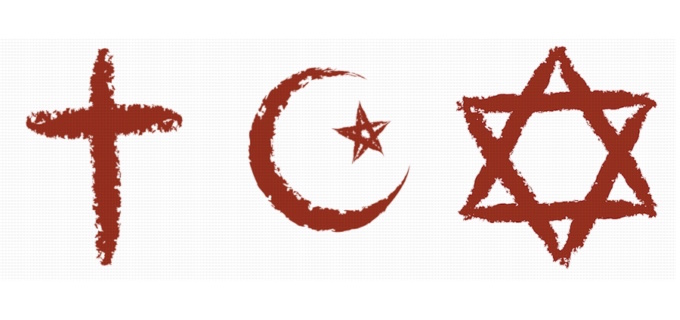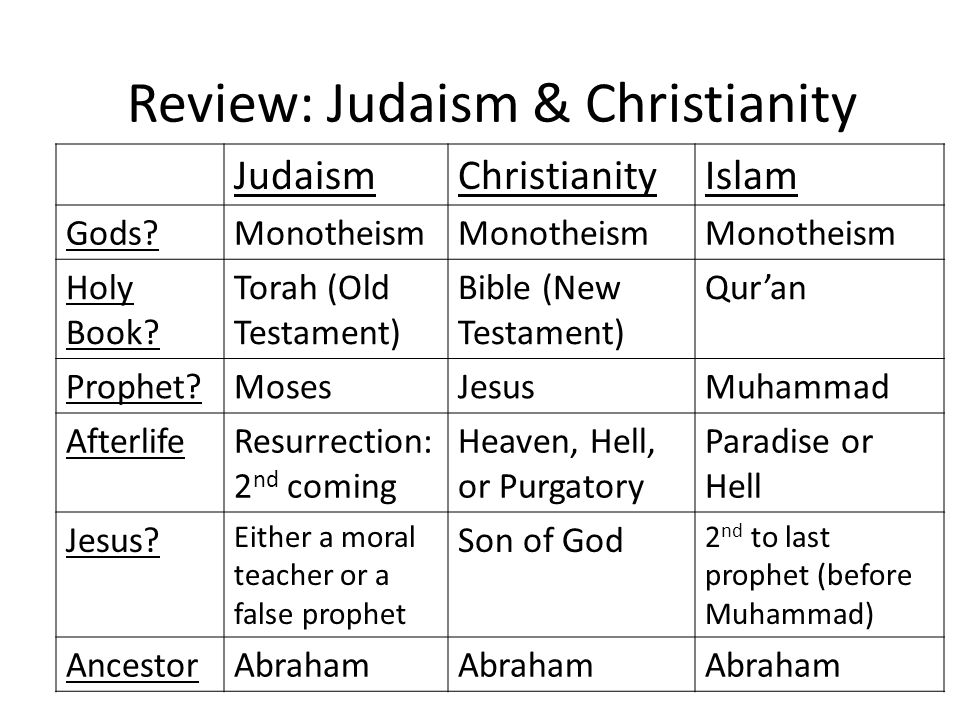Christianity, Islam, and Judaism are three of the world's major monotheistic religions. While all three religions believe in one God, there are significant differences between the three that have shaped their respective beliefs, practices, and histories.
One of the most significant differences between Christianity, Islam, and Judaism is their respective beliefs about the nature of God. Christians believe that God is a triune being, comprising the Father, the Son (Jesus Christ), and the Holy Spirit. Islam, on the other hand, teaches that God is a singular, unified being, and that Jesus was a prophet but not the son of God. Judaism also teaches that God is a singular, unified being, but does not believe in the concept of the trinity.
Another major difference between the three religions is their beliefs about the role of Jesus Christ. Christians believe that Jesus is the son of God and the savior of humanity, who died on the cross to redeem humanity's sins. Islam, on the other hand, does not recognize the divinity of Jesus and instead views him as a prophet. Judaism does not recognize the divinity of Jesus at all.
The three religions also have different beliefs about the nature of salvation and the path to spiritual fulfillment. Christians believe that salvation is achieved through faith in Jesus Christ and acceptance of his sacrifice on the cross. Islam teaches that salvation is achieved through submission to the will of God, as demonstrated through a life of righteousness and good works. Judaism, on the other hand, believes that salvation is achieved through living a life of righteousness, obedience to the commandments of God, and following the teachings of the Torah.
Another major difference between the three religions is their respective holy texts. Christians follow the Bible, which consists of the Old Testament (commonly shared with Judaism) and the New Testament. Islam follows the Qur'an, which Muslims believe is the direct word of God as revealed to the prophet Muhammad. Judaism follows the Torah, which consists of the first five books of the Hebrew Bible.
In terms of practices and rituals, Christianity, Islam, and Judaism also have significant differences. Christians follow a weekly worship service that includes prayer, singing, and the reading of scripture. They also observe several major holidays, including Christmas (celebrating the birth of Jesus) and Easter (celebrating the resurrection of Jesus). Islam has a strong emphasis on daily prayer and the observance of the month-long fast of Ramadan. Islam also has a number of major holidays, including Eid al-Fitr (marking the end of Ramadan) and Eid al-Adha (commemorating the sacrifice of Abraham). Judaism has a weekly worship service that includes prayer and the reading of scripture, and also has a number of major holidays, including Rosh Hashanah (the Jewish New Year) and Yom Kippur (the Day of Atonement).
In conclusion, while Christianity, Islam, and Judaism all believe in one God, there are significant differences between the three religions in their beliefs about the nature of God, the role of Jesus Christ, the path to spiritual fulfillment, and their respective holy texts and practices. These differences have shaped the histories and cultures of the three religions and continue to influence the way they are practiced today.






